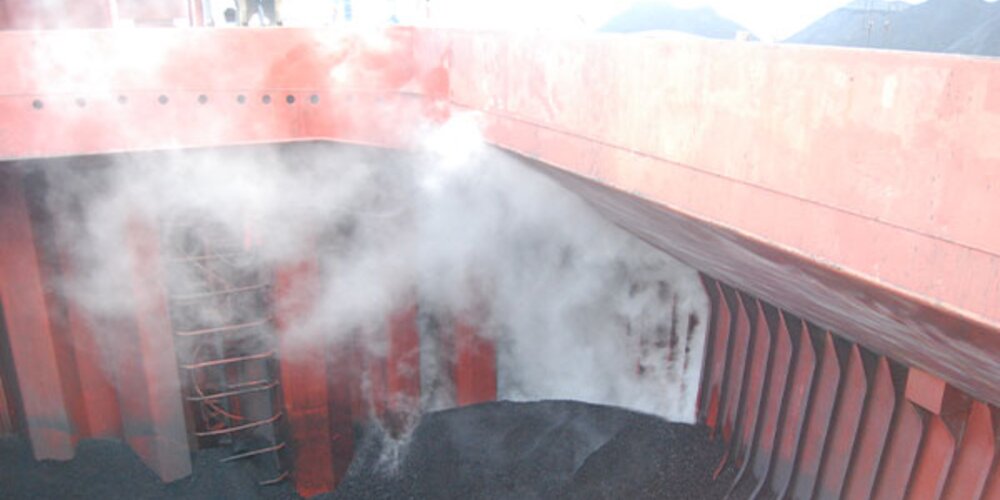Browse our services
Explore how Brookes Bell can help you
Find an expert
Meet our team, find and expert and connect
Contact us
Get in touch, we're here to help

Marine fires can occur anywhere on a vessel, from cargo holds and engine rooms to accommodation areas and even shore-side facilities. Brookes Bell’s specialist team of Fire Investigators have a global track record investigating all these scenarios and more. They have examined everything from cargo fires and engine room blazes on major commercial vessels to yacht fires at sea and complex industrial fires on land.
So how are these investigations carried out? The process is methodical and evidence-based, following a logical scientific approach and drawing on a world-class multidisciplinary team of experts.
Every fire investigation begins with a rapid initial response. Establishing a clear timeline of events is crucial in the aftermath of a fire. This is why Brookes Bell’s investigators are available to mobilise at short notice and often begin gathering information before they even arrive on site – for instance, by remotely monitoring the situation aboard a vessel in case an emergency situation develops at sea.
“We carry out a lot of remote cargo monitoring,” explains Kaitn Walker, Scientist and Fire Investigator at Brookes Bell. “For example, a client might get in touch when a coal cargo’s methane levels are approaching the Lower Explosive Limit, or if they have experienced elevated levels in the past and want to take a more cautious approach. We can then make any checks quickly let them know the cargo status.”
This desktop review, alongside the examination of records and initial reports from crew or emergency services, can give investigators a clearer picture before they arrive at the scene. “Ideally, we review the documents first, including cargo details, voyage records and any available reports,” Kaitn explains. “That background helps us build a clearer picture of what we’re walking into and ensures we’re asking the right questions from the outset. However, reliable information is not always available ahead of attendance, and we keep an open mind as to what the situation is when we arrive.”
Once on site – whether on a vessel or at a port facility – Brookes Bell’s investigators carry out a detailed inspection of the fire scene. In most cases, the team attends after the fire has been extinguished and the area declared safe, though occasionally they may be called upon to assist during an ongoing incident, working closely with Brookes Bell's salvage specialists where appropriate. The priority is to identify and preserve any physical evidence that could indicate how the fire started and spread, which can be difficult as the act of putting out onboard fires can result in lost evidence. Investigators document the damage, take photographs, and assess the condition of equipment and fire safety systems. Instruments are often used to monitor hazardous gases, atmospheric conditions and thermal activity - for example, in closed cargo holds or containers.
Brookes Bell’s Fire Investigators take a meticulous, forensic approach to this phase, ensuring a high standard of evidence collection, preservation, and continuity. Debris and damaged components that may provide insight into the fire’s cause are carefully recovered for later analysis. The aim is to ensure that no valuable evidence is lost.
“We investigate causation from the evidence available. It’s the physical evidence, properly collected and documented, that ultimately builds our conclusions,” says Kaitn.
With access to in-house laboratory facilities and technical expertise, Brookes Bell carries out detailed analysis of the collected evidence. This could involve chemical testing of burn residues, metallurgical assessment of melted or broken parts, or electrical analysis where batteries or circuits are involved. This phase of the investigation draws on Brookes Bell’s full multidisciplinary strength. Chemists, Engineers, Master Mariners, Naval Architects and Scientists work closely together to interpret the data and identify potential causes.
“Often, fire investigations touch every part of a vessel, so collaboration is key,” explains Kaitn. “For marine fires, we might work closely with Master Mariners, Marine Engineers, Metallurgists—whoever is needed to build the full picture. That combination of top expertise is what helps us to get to the root of what happened.”
By combining technical knowledge, the team ensures that every aspect of the incident is properly understood, and nothing is overlooked.
Once the investigation is complete, the team produces a comprehensive report outlining their findings if required by clients. This typically includes a timeline of the incident, the likely point of origin, the cause of the fire, and any contributing factors – whether human, mechanical, or environmental. The report may also evaluate the performance of safety systems and offer recommendations to help prevent similar incidents in future. These findings can be crucial for shipowners, insurers, legal teams, and safety regulators.
Importantly, Brookes Bell’s reports are backed by critical evidence and rigorous scientific analysis. Our team develops and tests various hypotheses, ruling out possibilities until they arrive at the most probable explanation.
Every fire investigation brings its own set of challenges, and that variability means flexibility and experience are key. “I don’t think I’ve ever investigated the same cargo fire twice in exactly the same way,” says Kaitn. “Even when it’s the same type of cargo, the conditions, handling, and circumstances around the incident are always different. That’s what makes fire investigation so complex—and why you need to stay flexible and analytical in your approach. Each case teaches you something new.”
With a global presence, in-house laboratory facilities, and a truly multidisciplinary team, Brookes Bell delivers clarity where it's needed most. From the first response to final reporting, our Fire Investigators apply scientific precision, technical depth and sector expertise to uncover the facts. All with the goal of helping our clients respond, recover, and reduce risk for the future.